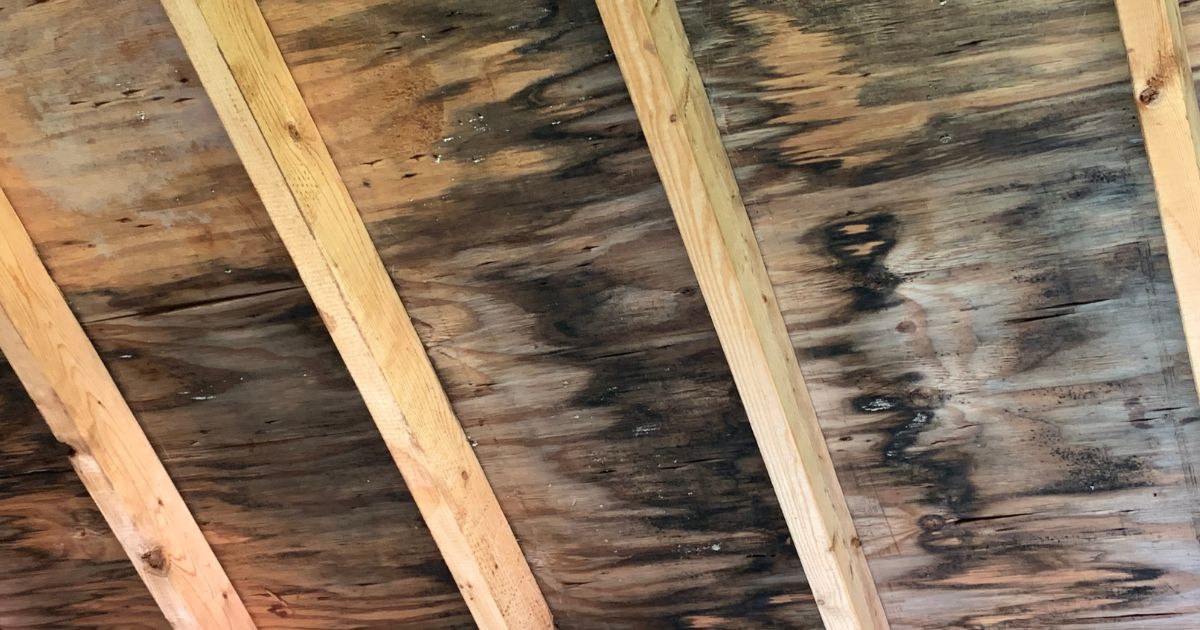What Is the Difference Between Mold Assessment and Mold Remediation?
May 1, 2023

If you suspect mold growing in or around your home or business, your first reaction is to remove it immediately. However, that is a difficult task if you attempt to do it alone. Mold remediation is not an easy problem, you should first discuss the problem with professionals and have the issue inspected, assessed, and then removed.
This is when you will hear the terms “mold assessment” and “mold remediation,” which are two parts of the removal process:
- Mold assessment: A detailed inspection of indoor air and surfaces that determines if removal is necessary. After removal, a post-assessment can be performed to determine if the area is completely mold-free.
- Mold remediation: Remediation is a specialized process that removes, sanitizes, cleans, or destroys infected areas, as well as the removal of mold-contaminated objects.
It is easy for a mold remediation company to perform the assessment and remove the mold without having the situation checked by a third party. In this case, it is recommended to not use the same company to perform the two separate processes, as doing so will create a conflict of interest.
Although the two processes are within the same industry, for the assurance of the customer, they should be performed by two separate companies. When hiring a mold remediation specialist, make sure they recommend a third-party assessment company to test the area.
Mold Exposure Problems
Mold exposure can cause different health problems for yourself and whomever breathes the mold spores in. From physical issues, like breathing problems or muscle pain, to other problems, like digestive disorders or depression, mold can be a serious problem if left untreated:
- Breathing issues: Mold exposure can cause different respiratory issues and can make existing breathing conditions worse. Mold exposure can cause asthma problems, wheezing, coughing, sore throats, congestion, and irritation of the nasal passages. For those who have a compromised immune system, mold exposure can cause pneumonitis, sinus congestion, allergic rhinitis, and allergic bronchopulmonary aspergillosis.
- Skin issues: Your skin is one of the first organs that will indicate a body is suffering from an illness. Skin becomes dry, flaky, or itchy when exposed to mold or when mold illness begins, which could then develop into rashes or hives.
- Pins and needles: It is common to experience numbness, twitching, or “pins and needles” sensations in the extremities when exposed to mold.
- Digestive disorders: There are many digestive problems caused by mold exposure, such as unwanted weight loss, lack of appetite, stomach pain, nausea, vomiting, and diarrhea. Mold spores can also cause systemic inflammation in the stomach, causing weight gain and bloating.
- Depression: Psychiatric symptoms are related to mold exposure as well, such as depression, insomnia, anxiety, memory issues, and concentration issues.
- Headaches and dry eyes: Mold exposure can cause symptoms similar to hay fever. Issues like red, itchy eyes, and blurry vision are common. Sinus issues can happen as well, including headaches or migraines.
- Muscle pain: Many who have experienced mold exposure experience muscle pain in different muscle groups. Some report a dull achiness, while others may report sharp, intense muscle pain.
Mold can grow in dark or damp areas. It can appear green, black, or brown, and can have a musty or earthy smell. You can prevent mold growth by repairing water leaks or using fans to circulate the air. You should also try to decrease the humidity in your home. However, mold should be assessed and removed by a professional.
Wilmington Environmental Lawyers at Jacobs & Crumplar, P.A. Represent Clients Suffering From Mold Illnesses Caused by Negligence
Businesses, schools, and our spaces can have mold growing in unseen areas, making you and your family sick. Our Wilmington environmental lawyers at Jacobs & Crumplar, P.A. represent clients who have been impacted by mold exposure. Call us at 302-656-5445 or fill out our online form for a consultation. Located in Wilmington and Millsboro, Delaware, we serve clients in Dover, New Castle County, and Sussex County.
